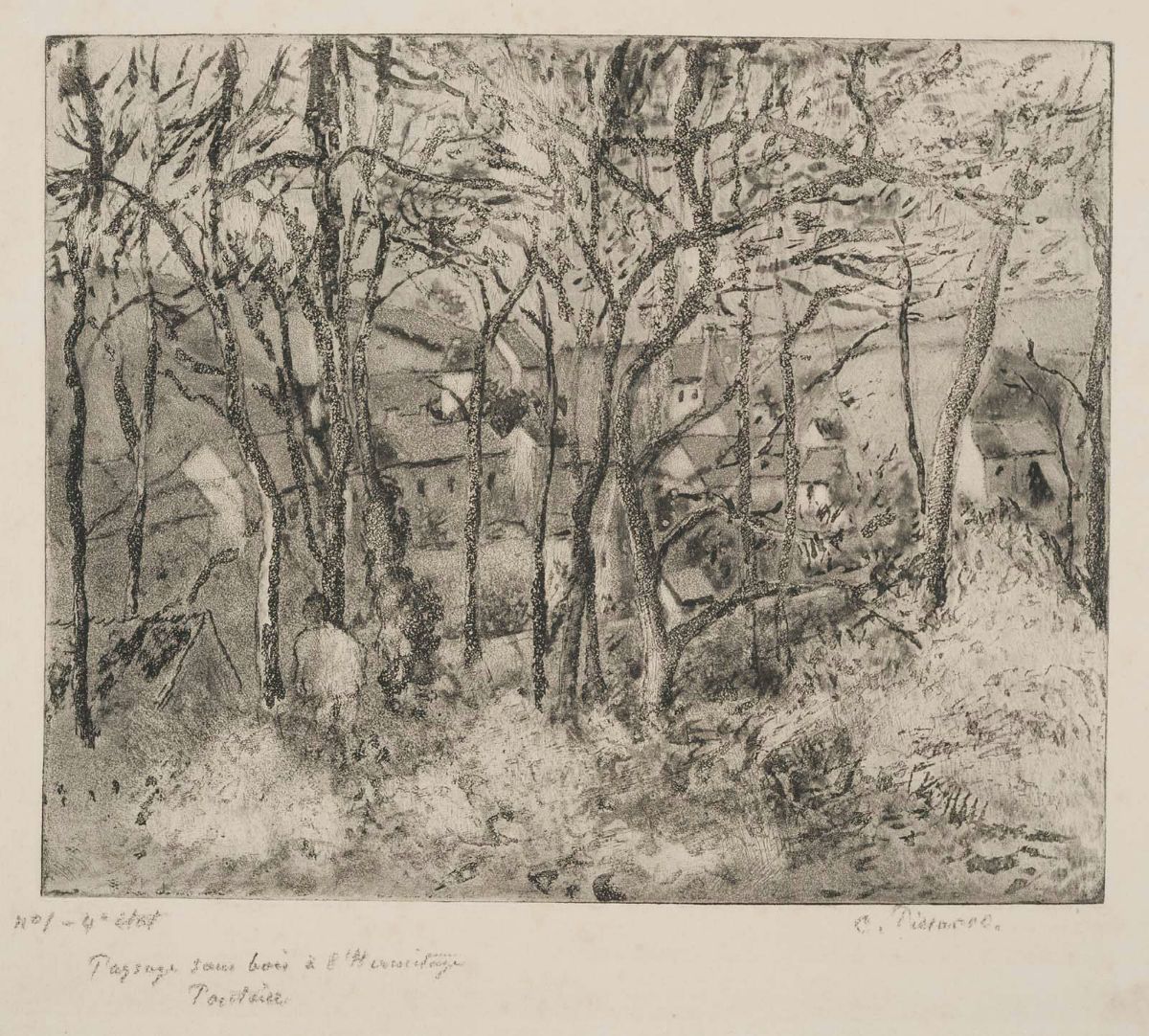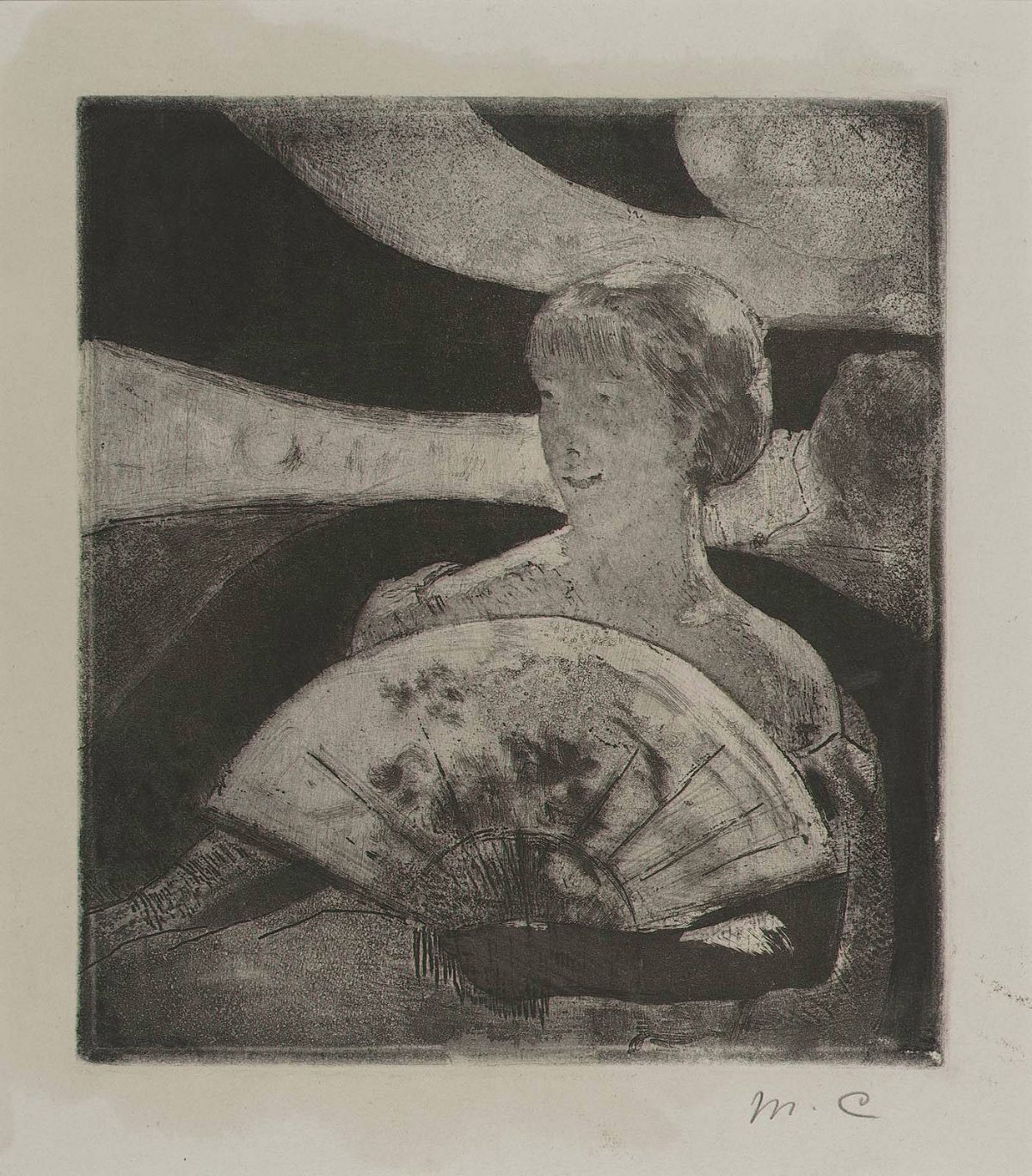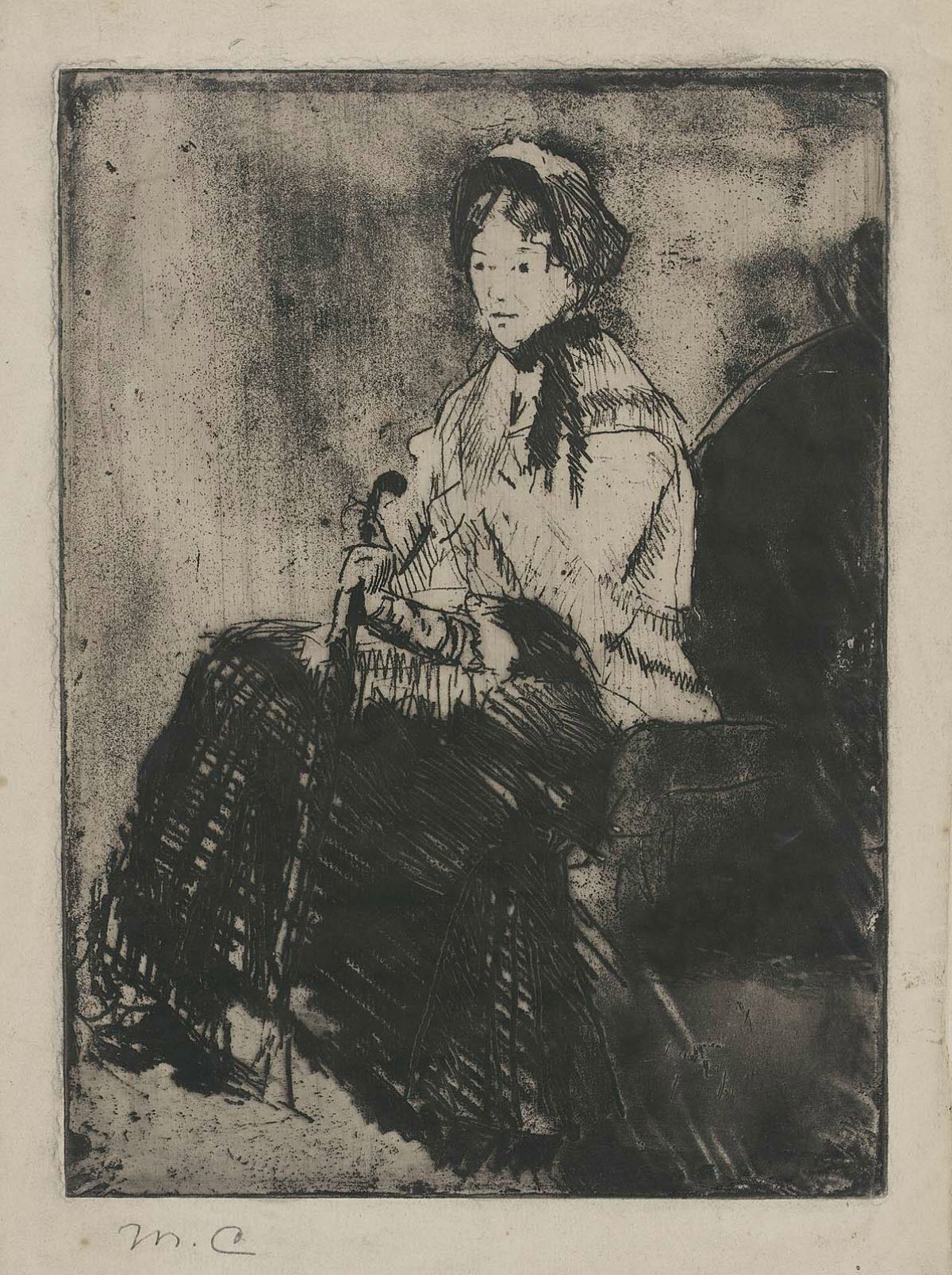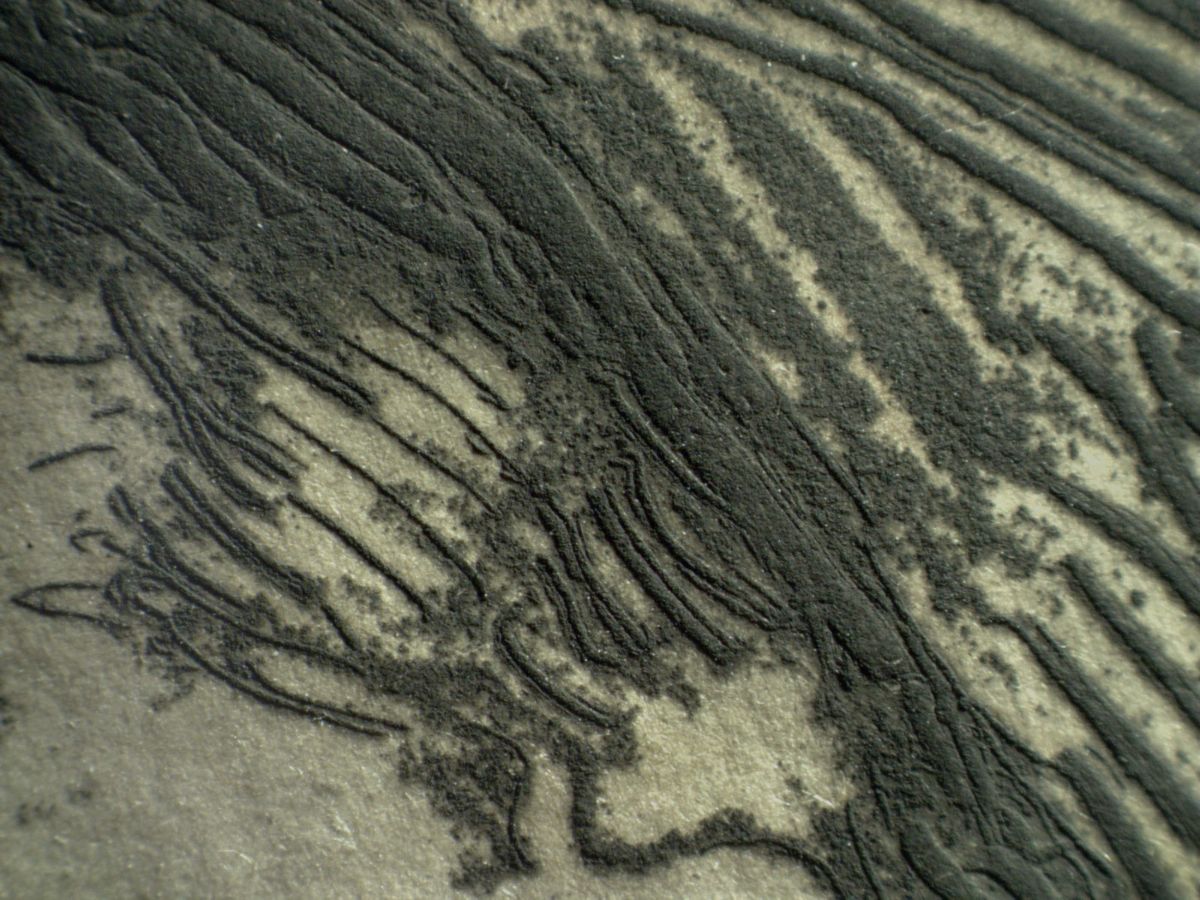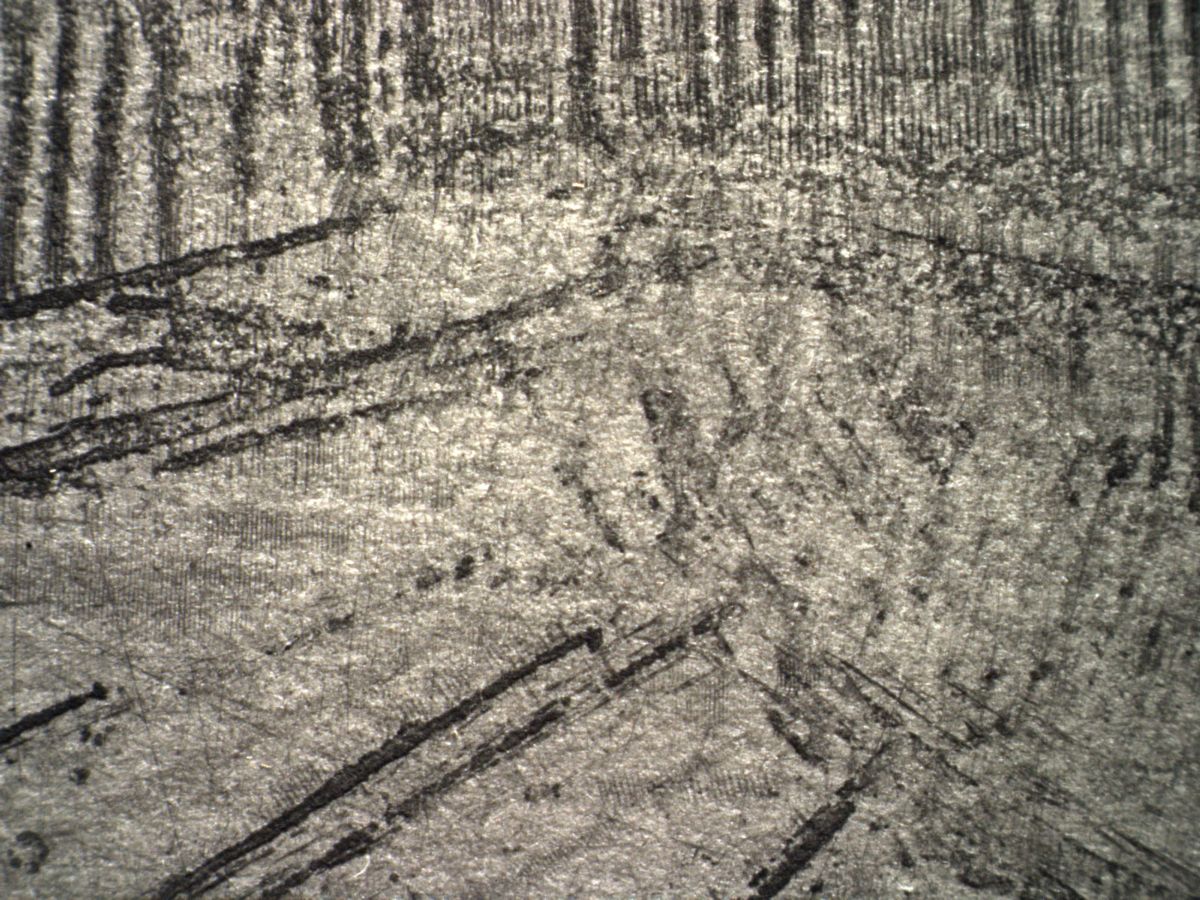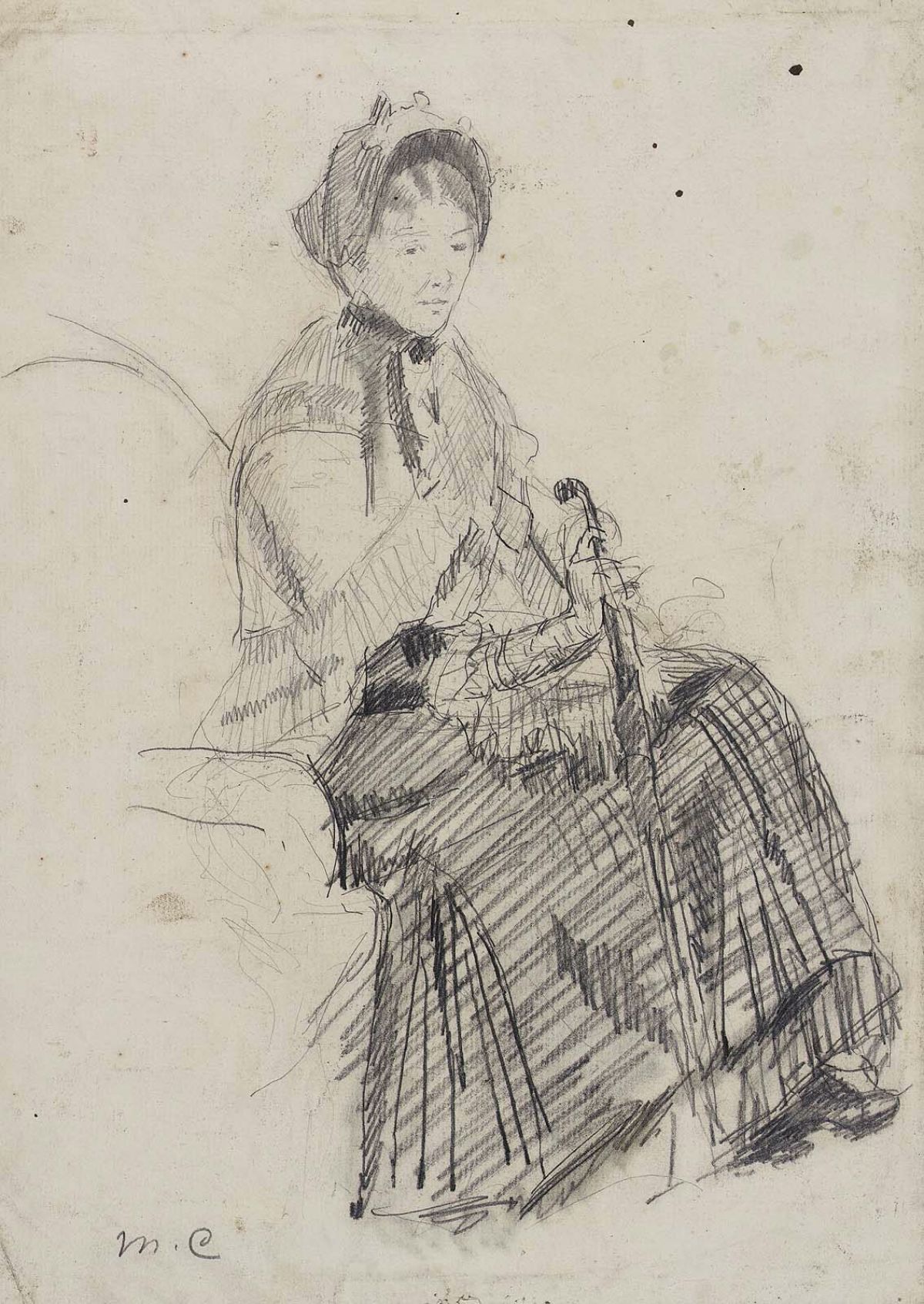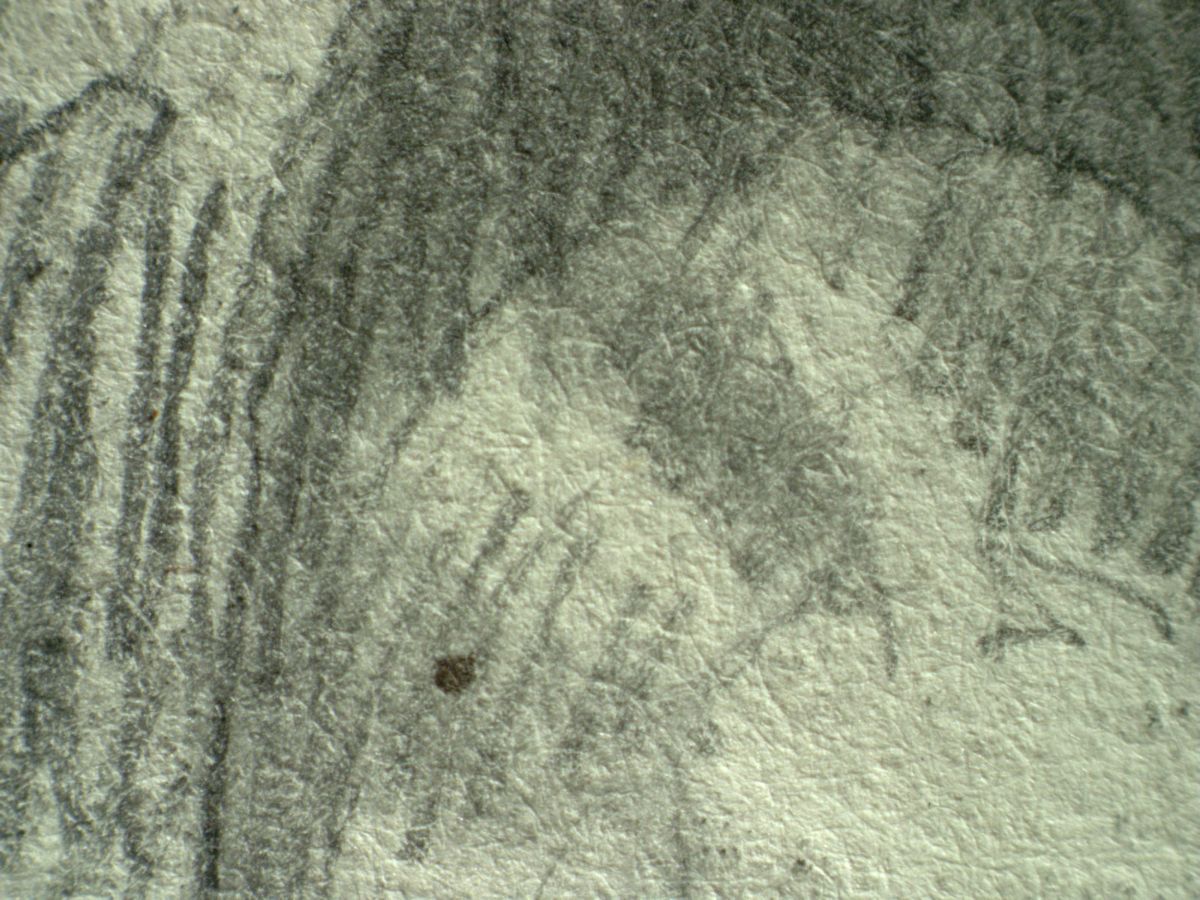Soft ground etching: Difference between revisions
Jump to navigation
Jump to search
No edit summary |
|||
| (4 intermediate revisions by 2 users not shown) | |||
| Line 1: | Line 1: | ||
[[File:1971.268-SC28837.jpg|thumb|]] | [[File:1971.268-SC28837.jpg|thumb|Pissarro soft ground etching<br> MFA# 1971.268]] | ||
== Description == | == Description == | ||
An etching prepared from a plate that is covered with a thin, soft, tacky material. Soft ground etching was used since the late 18th century to produce offset drawings with very fine textures. For the technique, a printing plate is spread with the soft ground (often containing [ | An etching prepared from a plate that is covered with a thin, soft, tacky material. Soft ground etching was used since the late 18th century to produce offset drawings with very fine textures. For the technique, a printing plate is spread with the soft ground (often containing [[natural%20resin|resin]], [[wax|wax]], and/or [[grease|grease]]), then covered with a [[drawing%20paper|drawing paper]]. As the artist draws the image, the pressure causes the tacky ground to adhere to the paper and thus expose the metal plate. Once the paper is removed, the plate is etched with a weak [[acid|acid]]. | ||
[[File:2001.691-SC20638.jpg|thumb|]] | [[File:2001.691-SC20638.jpg|thumb|Cassatt soft ground etching<br> MFA# 2001.691]] | ||
== Synonyms and Related Terms == | == Synonyms and Related Terms == | ||
| Line 12: | Line 12: | ||
<gallery> | <gallery> | ||
File:2001.685-SC20633.jpg| | File:2001.685-SC20633.jpg|Soft ground etching<br> MFA# 2001.685 | ||
File:2001. | File:2001.685.det.sge.jpg|Soft ground etching<br> detail MFA# 2001.685 | ||
File:2001. | File:SC423852.jpg|Soft ground etching<br> MFA# 2001.688 | ||
File:2001. | File:2001.688.det.jpg|Soft ground etching<br> detail MFA# 2001.688 | ||
File:2001.700.det.gp.jpg|Soft ground etching | File:2001.700-SC20647.jpg|Soft ground etching<br> MFA# 2001.700 | ||
File:2001.700.det.gp.jpg|Soft ground etching<br> detail MFA# 2001.700 | |||
</gallery> | </gallery> | ||
==Resources and Citations== | |||
== | |||
* ''Encyclopedia Britannica'', http://www.britannica.com Comment: "printmaking." Encyclopædia Britannica. 2005. Encyclopædia Britannica Premium Service 3 Feb. 2005 . | * ''Encyclopedia Britannica'', http://www.britannica.com Comment: "printmaking." Encyclopædia Britannica. 2005. Encyclopædia Britannica Premium Service 3 Feb. 2005 . | ||
Latest revision as of 11:51, 2 June 2022
Description
An etching prepared from a plate that is covered with a thin, soft, tacky material. Soft ground etching was used since the late 18th century to produce offset drawings with very fine textures. For the technique, a printing plate is spread with the soft ground (often containing resin, wax, and/or grease), then covered with a drawing paper. As the artist draws the image, the pressure causes the tacky ground to adhere to the paper and thus expose the metal plate. Once the paper is removed, the plate is etched with a weak acid.
Synonyms and Related Terms
soft-ground etching; Weichgrundradierung (Deut.)
Additional Images
Resources and Citations
- Encyclopedia Britannica, http://www.britannica.com Comment: "printmaking." Encyclopædia Britannica. 2005. Encyclopædia Britannica Premium Service 3 Feb. 2005 .
- Luis Nadeau, Encyclopedia of Printing, Photographic, and Photomechanical Processes, Atelier, New Brunswick, 1997
- The Bullfinch Guide to Art History, Shearer West (ed.), Bullfinch Press, Boston, 1996
- B. Gascoigne, How to Identify Prints, Thames & Hudson, London, 2004
